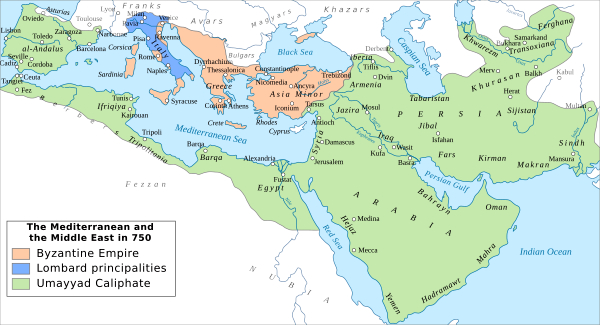
We have seen a recent spike in persecutions against Christians in India. Persecutions against minorities have been recorded even in the history of Goa and across Europe, but lessons can and need to be learnt to avoid endangering the secular fabric of the country.
The Iberian peninsula (comprising modern Spain and Portugal) was ruled by the Catholic Visigothic kingdom between the 5th-8th centuries. However, in 711 CE, the Islamic Ummayad Caliphate invaded Iberia, annexed it, Islamicised it and renamed it Al-Andalus.
The response to it was the 'Reconquista' (Reconquest) by the Catholics to restore territories lost to Muslims as well as to restore the prominence of Catholicism. The reconquest ended in Portugal by 1297, while in Spain it was in 1492. Severe persecution began against non-Catholics such as Muslims, Jews and Moriscos (Moslems of Spanish ancestry).
The Inquisition, formerly restricted within the affairs of the Church, came to be used by these Catholic monarchs to expel non-Catholics who did not conform to Catholicism.
Catholicism was used by the state as a radical and reactionary tool in persecuting minorities such as Muslims, Jews, etc. as well as people who did not conform to Catholic teachings, such as the heretics and LGBT people. It was all justified in 'restoring the lost purity' of Catholicism and to eliminate the 'threat to the nation's integrity'.
The same spirit of the reactionary form of Catholicism (which was developed in response to the Islamisation of the Iberian peninsula) was applied by the Iberian countries (Spain and Portugal) not just in their territories, but also in their colonial possessions to 'purify' them of non-Catholic elements.
In Goa, the non-Portuguese underwent persecutions. Many Hindus had to flee Goa, while several temples were destroyed. Konkani was suppressed and many of the new converts (Goan Catholics) suspected of continuing Hinduism or their previous religions in secret were put to an inquisition. Members of the LGBT community were often put into slavery in the galleys, expelled from Goa or burnt alive.
Though the Pope heads the Catholic Church, the king of Portugal exercised greater control over the Church in his territories, claiming to be the protector of the Church. This system was called Padroado. Under Padroado, the inquisition functioned more to serve colonial aspirations rather than its genuine religious function.
In 1580, Spain annexed Portugal and formed the Iberian Union. The unification of the peninsula had long been a goal of the region's monarchs with the intent of restoring the Visigothic monarchy which was lost by Islamic invasion. It resulted in a nationalistic atmosphere in which Portugal wanted independence from Spain.
In 1640, with the ascension of the Braganza dynasty, Portugal became independent again. In the following years, the Xenophobic policies of Portugal increased and Catholic religious orders which did not conform to the Padroado authority were persecuted. For instance, the religious houses of the Carmelites of Old Goa were confiscated by the Crown as they were considered non-Portuguese foreigners who preferred to profess their obedience to the Pope rather than the King of Portugal. The king of Portugal even refused the Pope’s request to restore the confiscated religious houses.
Let us turn our attention to the Indian subcontinent. The Arab conqueror Muhammad bin Qasim of the Ummayad Caliphate conquered Sindh in 711 CE (note that in the same year the same Ummayad caliphate invaded Iberia).
In the subsequent centuries, the Indian subcontinent saw the arrival of many other Islamic and European invasions. It finally ended with the painful splitting of Bharat into Islamic Pakistan and Secular India.
The restoration of the lost heritage of Hinduism has been a prime focus of Hindutva thought and movements subscribing to that ideology. The love and zeal to recover what was lost for Hinduism are really commendable. But by what means can that be achieved? Unlike Pakistan, which was created based on Islam, India was created based on secularism which calls for the peaceful coexistence of various religions and works for the common good rather than the interests of a particular religion or language or culture.
Therefore, any effort towards this noble idea of restoring Hinduism by any group should not be done in a way that could endanger the secular fabric of this country. Unlike Iberian countries, where religion was the unifying factor, the unifying factor in India is 'Unity in Diversity'.
Can we expect proponents of Hindutva to achieve their goal through policies of exclusion, violence, hatred and hate speech, victimisation and finally, degradation of the human dignity of religious minorities, similar to what happened in Iberian countries and their colonies, including Goa?
In Iberia, the reactionary policies of 'restoring' the lost greatness of Catholicism because of Islamic invasion betrayed the very virtues of peace, love and forgiveness, the hallmarks of Catholicism. Do we want the same in India?
Beyond our religious differences and similarities, we are all members of one human family. Is it too hard to restore what was lost for Hinduism through peace, dialogue, harmony, brotherhood, forgiveness, non-violence, friendship and collaboration with all other faiths? Where there is a will, there is always a way.
(The writer is a Goa-based researcher on the Carmelite religious congregation)